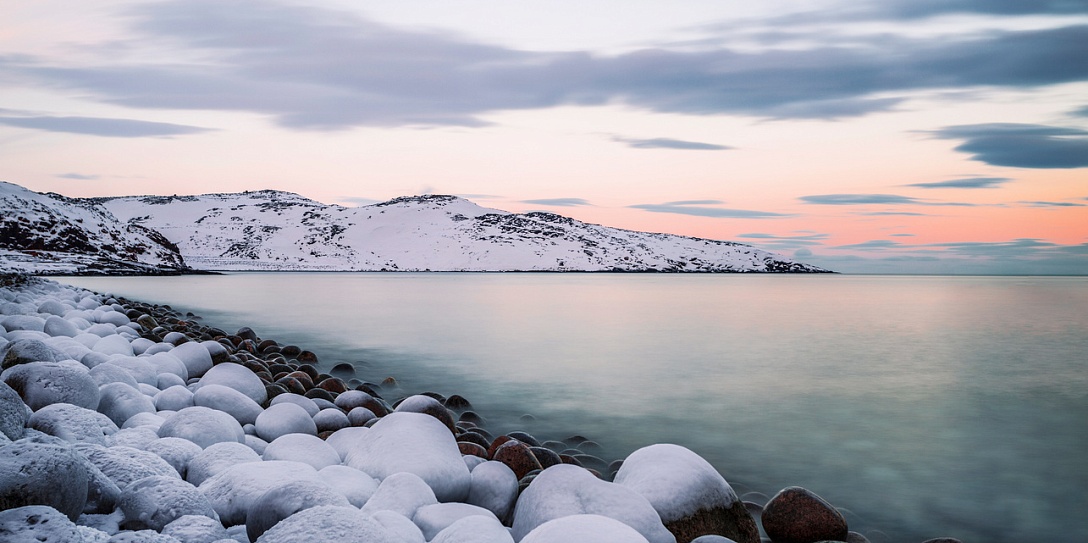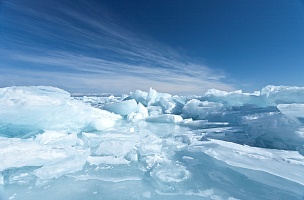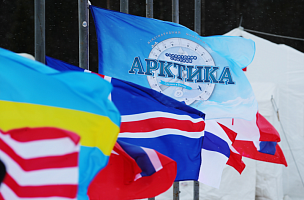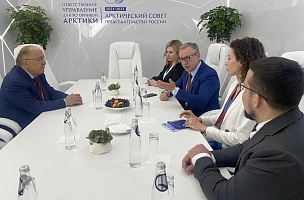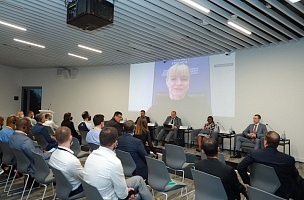Participants in the session ‘Multilateral Cooperation in the Arctic through the Prism of International Arctic Organizations: A Situational Analysis’ as part of the Think Arctic — Think Global analytical project discussed the current state of collaboration between Arctic states and prospects for international organizations in the region. The project is being implemented under the auspices of Russia’s chairmanship of the Arctic Council in 2021–2023. The Roscongress Foundation is managing the events of the chairmanship.
Despite the complicated international situation, Russia continues its work to ensure the sustainable development of the Arctic for the benefit of all people living in the region, including Indigenous peoples, Ambassador-at-Large of the Russian Ministry of Foreign Affairs and Chair of the Arctic Senior Officials Nikolay Korchunov said.
«We are proceeding from the assumption that the further effective work of the Arctic Council will depend on whether we manage to continue civilized and mutually beneficial cooperation together in this region in the interests of all its population, including Indigenous peoples, and to preserve the Arctic as a territory of peace, stability, and constructive interaction, specifically as stated in the Ministerial Declaration and the Arctic Council’s Strategic Plan 2030 adopted in May 2021. So far, unfortunately, we are seeing degradation and the fragmentation of multilateral cooperation. In the current situation, we are open to cooperation with all states that adhere to a constructive approach to collaboration with our country, including non-regional states, in the interests of the sustainable development of the Arctic,» Korchunov said.
Experts, scientists, and specialized professionals discussed the development of multilateral cooperation formats in the Far North, the role of international Arctic organizations in the new realities, as well as the opportunity to build new mechanisms for collaboration. The session results will be included in an analytical report on international cooperation for sustainable development between Russia and the Arctic and non-Arctic states, which will be prepared as part of the Think Arctic — Think Global project.
«The Arctic is a place to explore how humanity can resolve the challenges that it faces. Until recently, this region had always been a zone of cooperation and common work. Now the Arctic is being held hostage to the political situation,» University of Kent Professor Richard Sakwa said.
University of California Professor Emeritus Oran Young noted that in this new environment the future of the Arctic Council may involve creating opportunities for an exchange of views among the countries of the region.
«It is crucial to continue communication in the interests of the Arctic even in these difficult times. We see that institutions of cooperation have become victims of counteraction and conflicts of interests among different countries. The Arctic Council will definitely not be able to perform its work in the previous format. But even when keeping these changes in mind, the Council needs to promote continued communication between Arctic countries,» Young said.
In the run-up to the session, experts prepared a report identifying possible scenarios for the development of international cooperation in the Arctic. The report notes that the most positive scenario for the sustainable development of the region can only be realized if international organizations function at a high level, the world economy rapidly recovers, and countries are willing to invest in new international projects. In turn, attempts to isolate Russia will weaken international organizations in the Arctic, including the Arctic Council.
The report also emphasizes that if the world economy rapidly returns to its pre-crisis levels, demand for energy resources will recover and there will be a greater need for maritime transport routes, which could enable non-Arctic countries to join the system of multilateral cooperation in the Arctic.
«The Think Arctic — Think Global project is an impressive international element in Russia’s chairmanship of the Arctic Council. Russia and its closest partners are making every effort to ensure that the Arctic does not become a hostage to the political situation,» Roscongress Foundation Deputy Director for Expert and Analytical Work Grigory Velikikh said.
«Today, we managed to systematically discuss a wide range of issues that are difficult to talk about related to constraints in cooperation in the Arctic region. The participants were able to suggest focus areas for the development of a dialogue and clearly outlined their concerns,» said Anastasia Likhacheva, Dean of the Faculty of World Economy and International Affairs at the National Research University Higher School of Economics.
The Think Arctic — Think Global project is being implemented jointly by the Roscongress Foundation and the HSE Centre for Comprehensive European and International Studies. Its goal is to promote the Russian agenda in matters concerning sustainable development, strengthen a constructive international dialogue, and offer new points of contact for Russia’s collaboration in high latitudes with all interested countries and organizations. More detailed information about the Think Arctic — Think Global project, as well as a video recording of the session, is available in the Roscongress Foundation’s Information and Analytical System and on the website of Russia’s chairmanship of the Arctic Council in 2021–2023.
The comprehensive programme of Russia’s chairmanship of the Arctic Council aims to promote cooperation to improve the well-being and quality of life of the Arctic population, including the Indigenous peoples of the North, adapt the Arctic to the effects of climate change, conserve the biodiversity and unique ecosystems of the Arctic, ensure socioeconomic development, find solutions in matters concerning global energy and transport security, promote scientific cooperation in high latitudes, and strengthen international cooperation.


